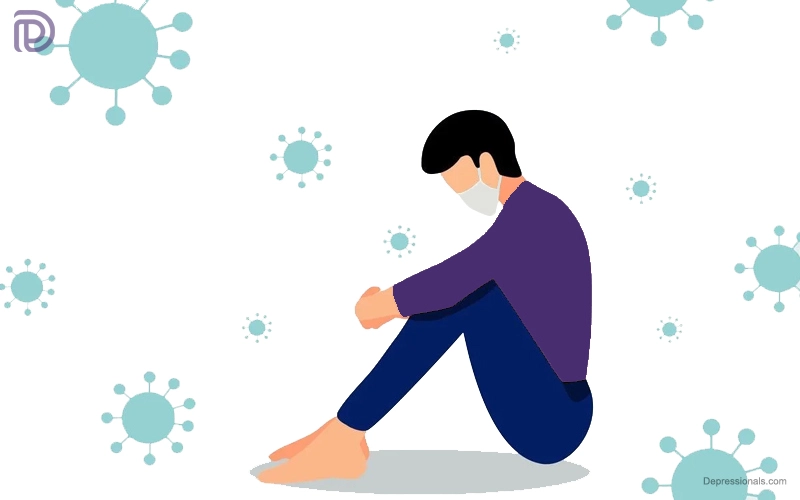Introduction
The COVID-19 pandemic has been more than a global health crisis—it has been a mental health crisis. From isolation and uncertainty to grief, financial strain, and burnout, people worldwide have experienced significant psychological challenges. The impacts have been particularly intense for frontline workers, caregivers, students, and individuals with pre-existing mental health conditions.
This article explores the mental health consequences of the pandemic and offers evidence-based coping strategies for managing stress, anxiety, depression, and emotional fatigue.
How the Pandemic Affected Mental Health
1. Increased Anxiety and Stress
- Constant news updates, fear of infection, and health concerns led to chronic anxiety.
- Uncertainty about the future and changing guidelines increased emotional stress.
2. Loneliness and Isolation
- Lockdowns and social distancing separated people from loved ones.
- Those living alone or in care facilities were at heightened risk of social isolation.
3. Grief and Loss
- Many experienced the loss of loved ones without the chance to say goodbye.
- Grieving rituals (e.g., funerals) were restricted or postponed.
4. Depression and Hopelessness
- Job loss, disruption of plans, and long-term uncertainty triggered symptoms of depression.
- Feelings of hopelessness were especially common during extended lockdowns.
5. Burnout and Fatigue
- Healthcare workers, parents juggling remote learning, and essential workers faced emotional exhaustion.
- The never-ending nature of the crisis led to pandemic fatigue.
6. Substance Use and Relapse
- Some turned to alcohol or drugs to cope, and relapse rates increased among those in recovery.
Groups at Higher Risk of Mental Health Struggles
- Frontline and healthcare workers
- Older adults, especially those in long-term care
- Teens and young adults, affected by isolation and academic disruption
- People with disabilities or chronic illnesses
- Low-income individuals facing housing or food insecurity
- People with pre-existing mental health conditions
Warning Signs of Mental Health Strain
Recognizing symptoms early can lead to quicker support and recovery. Common signs include:
- Persistent sadness or hopelessness
- Anxiety or panic attacks
- Difficulty sleeping or concentrating
- Loss of interest in usual activities
- Fatigue or irritability
- Changes in appetite
- Thoughts of self-harm or suicide
If you or someone you know is experiencing these symptoms, seeking professional help is vital.
Coping Strategies for Mental Health During and After the Pandemic
1. Stay Connected Socially (Even if Physically Distant)
- Regular video calls, phone chats, and even texting help reduce isolation.
- Virtual game nights, book clubs, or support groups can maintain community.
2. Maintain a Routine
- A predictable daily schedule provides structure and normalcy.
- Include time for meals, exercise, rest, and hobbies.
3. Limit Media Exposure
- Constant COVID news can increase anxiety.
- Choose reliable sources and set time limits on news consumption.
4. Practice Mindfulness and Relaxation
- Techniques like deep breathing, yoga, or meditation help calm the nervous system.
- Apps like Headspace, Calm, or Insight Timer can guide you.
5. Stay Physically Active
- Even light activity like walking can boost mood.
- Exercise releases endorphins and reduces stress hormones.
6. Focus on What You Can Control
- Let go of things you can’t change (like mandates or case numbers).
- Focus on actions you can take: mask-wearing, handwashing, or helping others.
7. Express Your Emotions
- Journaling, talking to a trusted friend, or creative outlets like art can help release emotional tension.
8. Seek Professional Help
- Therapists can offer support through telehealth.
- Medication may be appropriate for some mental health conditions.
- Support groups can be helpful for shared experiences and healing.
Long-Term Mental Health Considerations
- Post-pandemic anxiety: Reintegrating into social life or workplaces may feel overwhelming for some.
- Children and adolescents may carry emotional scars from disrupted development or learning losses.
- Healthcare providers may face compassion fatigue or post-traumatic stress.
Continued access to mental health resources, destigmatizing treatment, and community healing efforts will be key in addressing these long-term effects.
Building Resilience Post-Pandemic
Resilience isn’t about avoiding stress—it’s about adapting and recovering. Build resilience by:
- Practicing gratitude regularly
- Developing healthy coping skills
- Building and maintaining supportive relationships
- Setting realistic goals and celebrating progress
- Maintaining a sense of purpose, even through challenges
Conclusion
The mental health impacts of the pandemic are real and lasting, but they are also manageable. While many have struggled, many have also discovered strength, empathy, and adaptability in unexpected ways.
Healing from a collective trauma takes time—but with support, self-awareness, and proactive strategies, individuals and communities can emerge more resilient, compassionate, and connected.
FAQs:
Is it normal to still feel anxious or down after the pandemic has eased?
Yes. Many people experience post-crisis anxiety or depression as they process what they went through. It’s important to seek support if these feelings persist.
What can I do if I feel too overwhelmed to cope?
Talk to a therapist, counselor, or primary care provider. You’re not alone, and professional help can offer tools to manage your stress.
How can I help a loved one struggling emotionally?
Listen without judgment, offer support, and encourage them to seek help. Sometimes just being present can make a big difference.
Are virtual therapy and mental health apps effective?
Yes, for many people. Teletherapy and mental health apps provide accessible tools and have been shown to help manage symptoms of anxiety, depression, and stress.
Can children and teens also suffer mental health effects from the pandemic?
Absolutely. Many have faced loneliness, academic stress, or family strain. Watch for behavioral changes and get professional help if needed.






